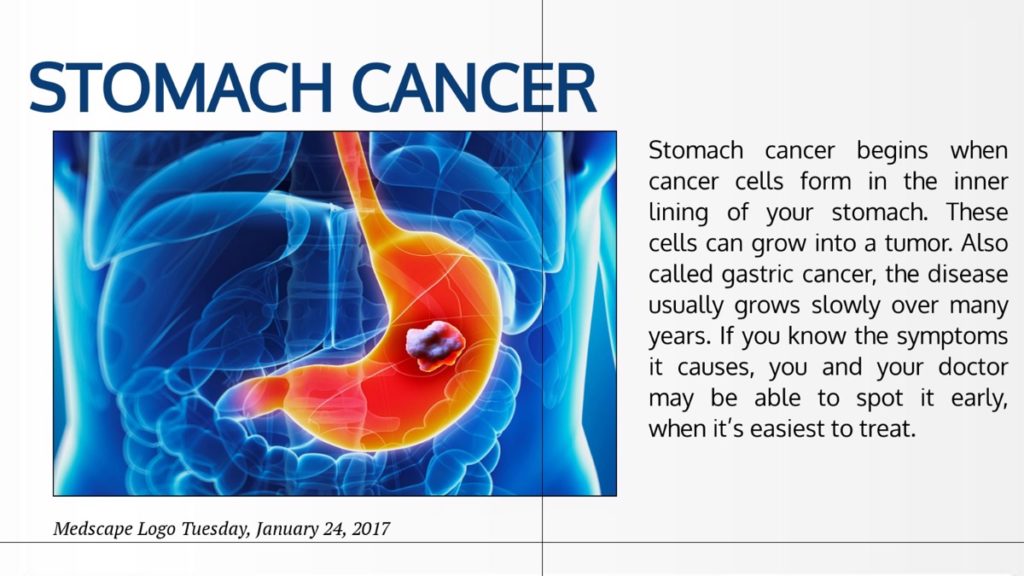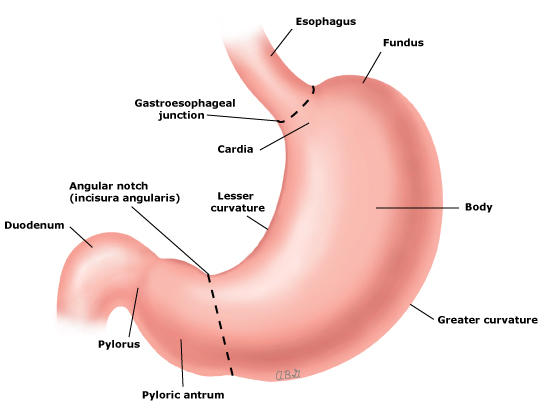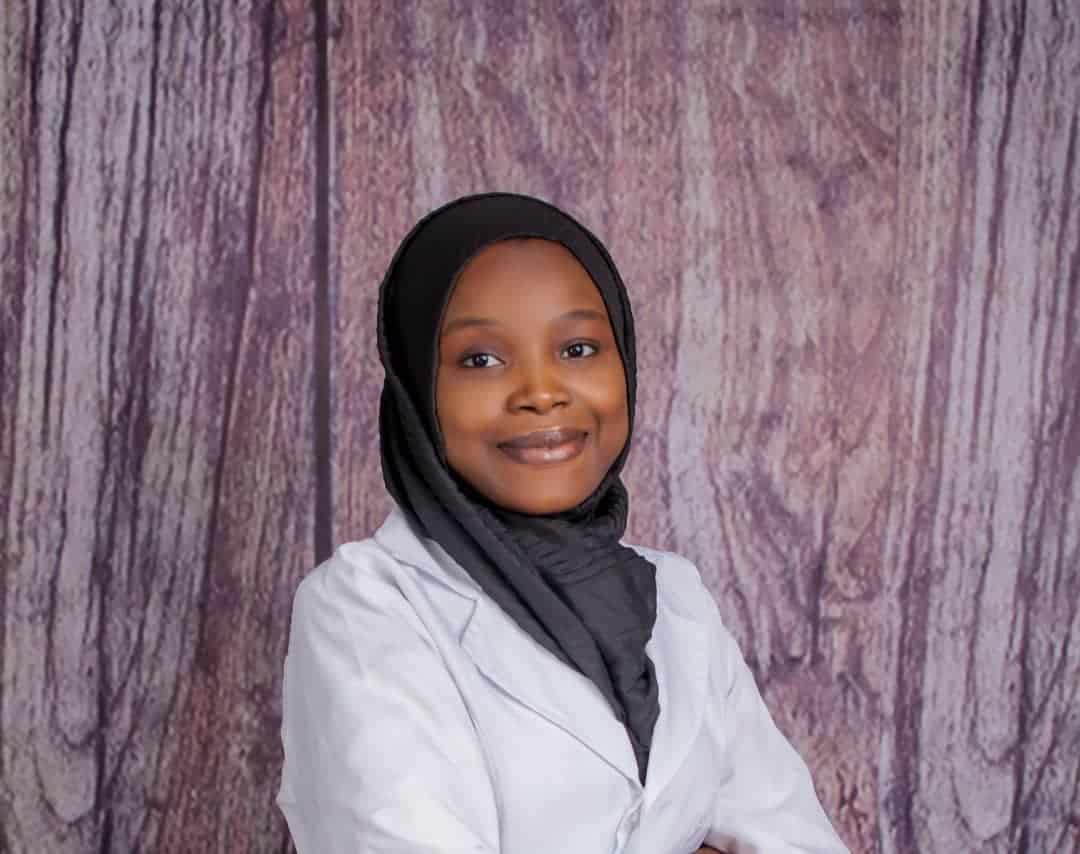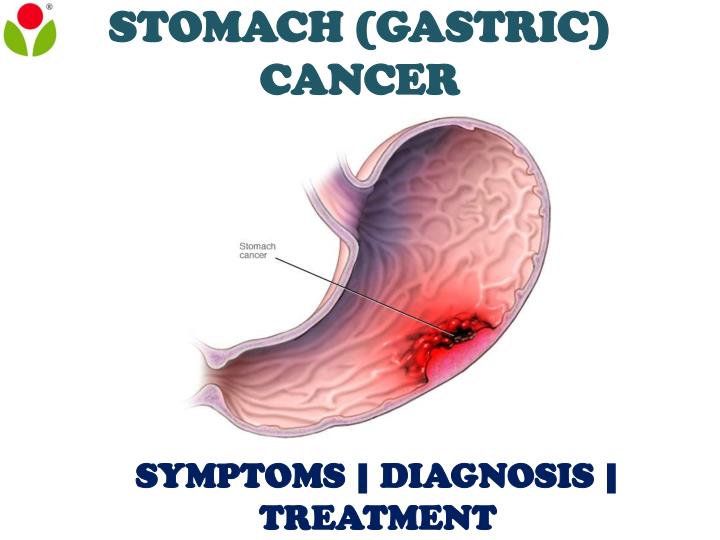The stomach is one of the major organs in the abdominal cavity which is usually shortened to ‘the abdomen’. It helps in the temporary storage of food and digestion.
Stomach cancer results from proliferation (excessive multiplication) of the cells that line the stomach. Early diagnosis is key to survival as late diagnosis is almost always fatal. According to WHO, stomach cancer is the third most common cause of death from cancer.

Factors that can make you have stomach cancer
The exact cause of stomach cancer is unknown. However, there are some known risk factors.
i. Old age
ii. Chronic gastritis that is an injury to the wall of the stomach.
iii. Stomach ulcer especially on the part of the stomach called lesser curvature.
iv. Smoked fish common in Japan.
v. Helicobacter pylori infection, these bacteria cause Peptic ulcer disease.
vi. Smoking
Clinical Presentation
This depends on site of the stomach where the tumour or cancer is located:

a. Pyloric antrum (see the image above): This presents with features of gastric outlet obstruction, e.g non-bilious (non-greenish) vomiting, epigastric pain (pain in the upper part of the abdomen) and swelling.
b. Cardia of the stomach (see the image above): This usually presents with difficulty in swallowing.
c. Lesser curvature of the stomach (see the image above): This presents with features similar to a peptic ulcer like belching, bloating, heartburn, etc.
Others symptoms of stomach cancer are prominent weight loss, early satiety (feeling of being easily satisfied with food) and abdominal distension
Diagnosis
Mainly based on history, examination & investigations
History – The presence of risk factors and known symptoms of gastric cancer are asked about.
Examination – Findings like weight loss, abdominal mass and/or distension, enlarged lymph nodes (particularly the left supraclavicular nodes) are major pointers towards gastric cancer.
Your doctor will request for the following investigations if he is suspecting stomach cancer:
- Oesophago-gastro-duodenoscopy (OGD) to visualize the cancerous mass/ulcer and take biopsy for histopathology. This is the golden standard to make the diagnosis of gastric cancer.
- Barium studies Barium meal
- Occult blood test
- Abdominal ultrasound
- CT scan of the abdomen and a chest X-ray to check for metastasis.
TREATMENT OF STOMACH CANCER
Surgery is the mainstay especially when the cancer is picked in its early stages. Total or partial gastrectomy (removal of the stomach) can be performed.
Chemotherapy, targeted therapy and radiotherapy are also sometimes used.
POSSIBLE COMPLICATIONS OF THE SURGERY
- Early dumping syndrome; it results from the movement of food from the stomach to the intestine within 10 to 30 minutes due to the small size of the stomach following surgery. It can result in a diarrhea (passage of watery stool) because of the rapid movement of food stuff through the gut.
- Late dumping syndrome; This is the rapid movement of sugar from the stomach into the intestine. This causes the blood sugar to shoot up resulting in hyperinsulinemia.
- Megaloblastic anaemia; due to loss of vitamin B12 as its absorption is dependent on intrinsic factor produced in the stomach.
- Achlorhydria; Also due to the loss of cells in the stomach which produce hydrochloric acid.
- Bleeding
- Intestinal obstruction due to adhesions
KEY POINTS
The stomach isn’t the same as the abdomen. The former is an organ, while the latter is a cavity which houses the stomach and several other organs like the liver, intestines, kidneys and so on.
Stomach carcinoma is very fatal with a poor prognosis, especially when diagnosed at a late stage. However, if screening can be adopted for individuals above forty who are at a high risk, the diagnosis can be made earlier and treatment can be successful.
Stomach ulcer is a predisposing factor, therefore all peptic ulcer patients should be treated adequately and undergo screening.

Dr Odusanya Bilikisu Oluwaseun, is a medical doctor and a graduate of Olabisi Onabanjo university, Ogun state, Nigeria.
She is a poet, reader and researcher, with keen interest in Global health, and management with emphasis on how these affects maternal and child health.
She has a good qualitative and quantitative data analysis skills. A high standing academic track record, and communicates fluently in English, Yoruba, and Hausa.

